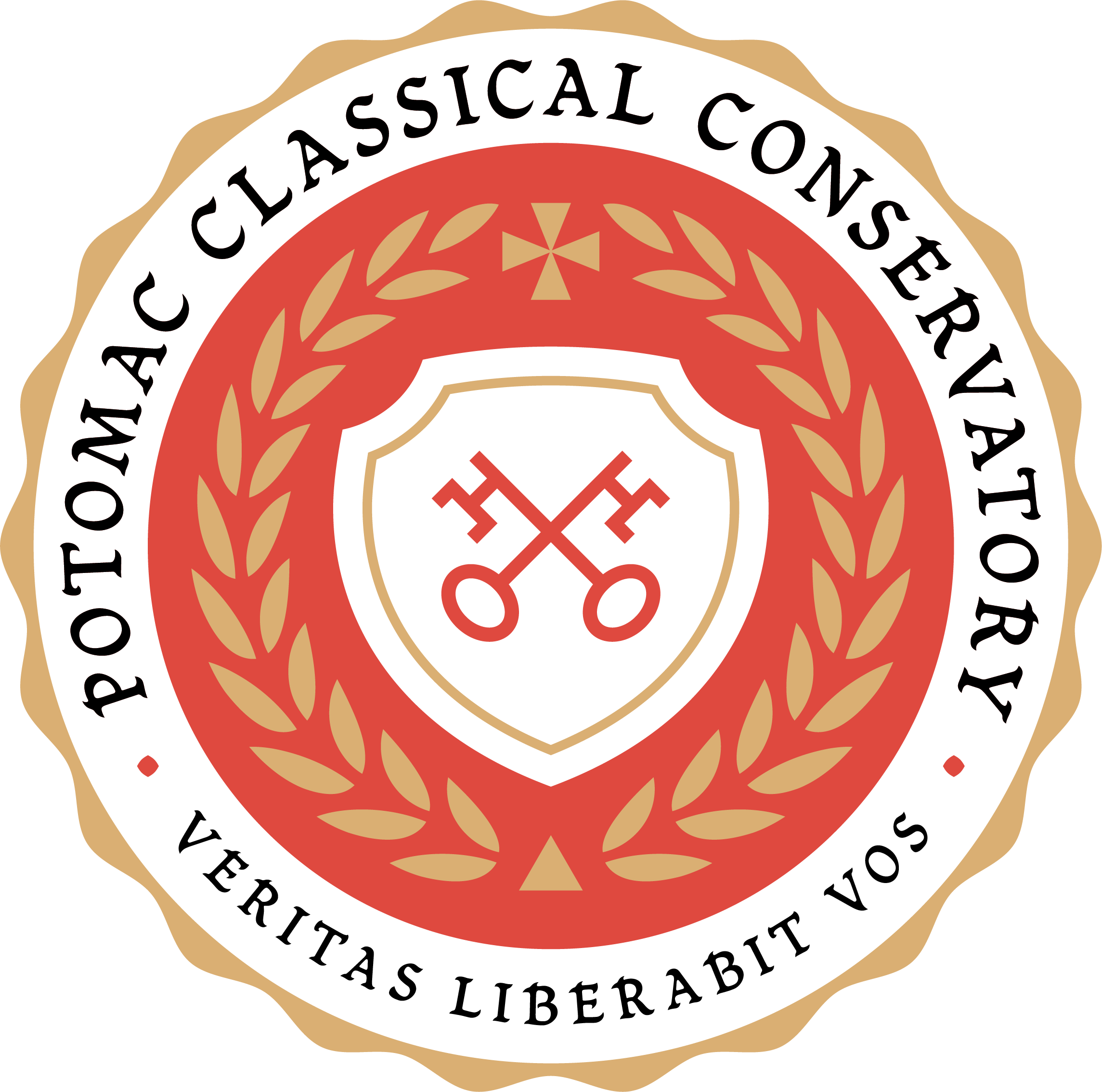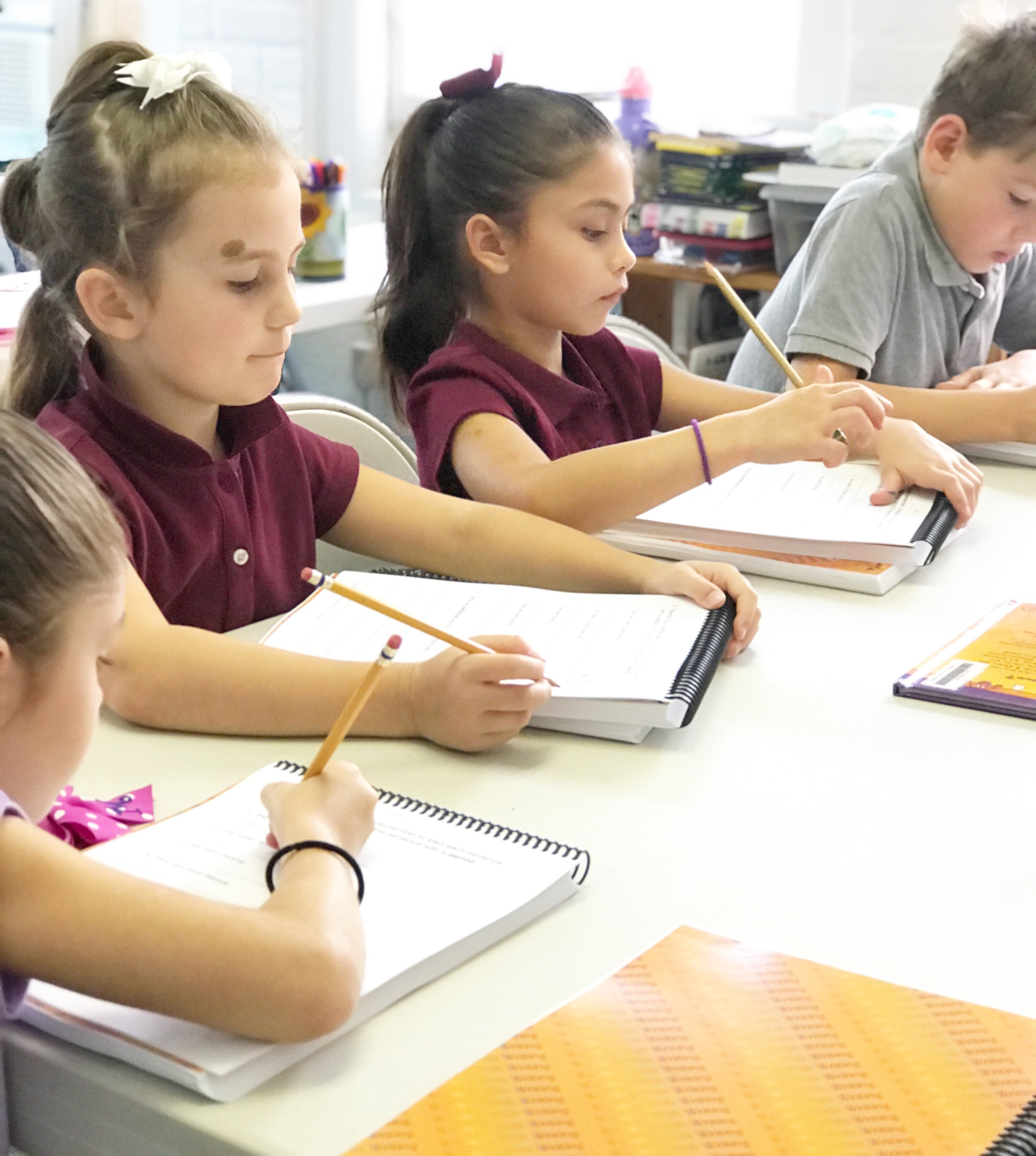Educational Philosophy
Potomac Classical Conservatory aims to develop students who are marked by their virtue and their intellect. We desire to teach our students to love learning and delight in clear thinking. We wish to equip them to communicate powerfully, winsomely, and graciously with the written and spoken word. We also believe that a child’s own parent is uniquely empowered and called to instill virtue and wisdom.
In order to accomplish those goals we have adopted a philosophy of education that is Classical, Christian, and Collaborative in structure.
By classical we mean:
The classical educational model existed for over 1500 years in various forms but fell into decline in the late 1800s due to the rise of industrialization. Over the last 30 years many Christians have discovered the riches of having a rigorous academic course of study married with a robust plan for spiritual formation. The resulting educational renaissance has spawned countless like-minded schools across the United States (see www.accsedu.org for more information).
Classical education describes the method by which knowledge is acquired not the particular subjects pursued, nor the specific curriculum employed.
The classical method seeks to develop in the student:
A body of knowledge essential to educated men and women
Sound thinking and reasoning skills
The capacity for beauty and clarity of expression
We base our educational approach on the classical teaching model known as the Trivium, which divides the educational life of the child into three stages: Grammar, Logic, and Rhetoric. These three stages take advantage of the student’s natural capacity for certain types of learning at as they progress developmentally. This method is well suited to developing logical thinking, reasoning, and communication skills that equip students for a lifetime of learning, as described by Dorothy Sayers in her essay, “The Lost Tools of Learning.”
By teaching students how to learn, we provide a solid foundation for mastering the specific subjects encountered throughout their formal education. The subject material and curricula at Potomac Classical are carefully chosen to prepare students for a variety of educational experiences, but our primary objective is that students gain the skills of learning for themselves. In the end, our teachers strive to instill in students a genuine love and enthusiasm for learning that will remain with them throughout their lives.
“We chose Potomac Classical because we wanted our daughter be challenged to think critically and holistically, to learn how to learn, and to see God as the central and unifying principle of all things. She has been receiving all of that and more.”
By Christian we mean:
Instruction at Potomac Classical Conservatory acknowledges that all life, knowledge, and meaning extend from our Creator. Our Christian philosophy of education means more than simply providing a religion class among many other classes. Rather, we seek to present the Lord as the One in whom all knowledge is united by integrating the Scriptures throughout the curriculum. This approach requires that all subjects, whether history, art, music, literature, mathematics, or science, be taught in the light of God’s existence and His revelation to humanity through His Son, Jesus Christ. We lead students in a pursuit of truth knowing that all truth points to God, and we encourage every student to develop a deep, genuine relationship with God through Jesus Christ.
As a Christian school, Potomac Classical serves children of believing parents. We require that at least one parent be a professing Christian and that the household be committed to a Christ-centered “paideia” (full instruction and upbringing of a child). At Potomac Classical, parents can have confidence they are in a partnership with other Christian parents that share similar commitments. As believers, we are brothers and sisters in Christ and joint-heirs in the gospel. We therefore have a great privilege and responsibility in our relationship with one another and with the mission of the school. While we are not the local church, we are a community often engaging in prayer, service, fellowship, and Biblical instruction.
Christian education at Potomac Classical does not stand in place of church or parents, but we are an extension of the Christian family, which is the responsible unit in God’s plan for the education of children.
Educators and staff of Potomac Classical operate in loco parentis, assisting in the education of children by a limited grant of the authority that truly belongs to their mothers and fathers. We soberly embrace this responsibility with great reverence and honor, recognizing the high calling God bestows upon parents, and we endeavor to humbly shoulder that calling as it pertains to academic and character formation during classroom hours.
By Collaborative we mean:
We employ a collaborative structure, which combines the best attributes of traditional and home schooling. Our collaborative model provides a a five-day academic program where students spend three days a week receiving instruction in the classroom at school and two days with parents at home.
This blended model mixes the benefits of professional educators and structured classroom instruction with the flexibility and freedom of parent-led education in the home. Home Instruction assignments are fully coordinated with Classroom Instruction days, providing a unique linkage between school and home that ensures intimate parental involvement in the education of their child. This reflects our belief that moms and dads are uniquely empowered and called to instill virtue and wisdom.
Potomac Classical also enjoys the benefits of mixed-age classrooms. In our classrooms students of different ages teach and learn from one another, seniority and rank are clear, responsibilities are commensurate with ability, and individual interests and talents are nurtured. This approach removes students from a conveyor belt set to a predetermined speed and offers opportunities for individualized pacing, projects and performance. Our students cultivate a love and respect for one another that transcends age specificity.


